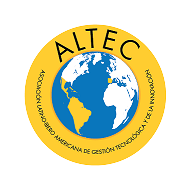| dc.contributor.author | Hernández Juárez, Luis | |
| dc.contributor.author | Sámano Castillo, José Sabino | |
| dc.date.accessioned | 2024-12-06T18:51:38Z | |
| dc.date.available | 2024-12-06T18:51:38Z | |
| dc.date.issued | 2023 | |
| dc.identifier.uri | https://hdl.handle.net/20.500.13048/2150 | |
| dc.description.abstract | The recent growing needs in the global food industry have been demanding an agile and resilient response
to continue manufacturing products with the expected quality and food safety. A key element for this is the
agility of the quality management of the supply chain, which has been achieved from using a correct quality management data digitization as well as its processing through business analytics and whose results
are presented in this business case.
A prerequisite to be met was the global standardization of supplier performance evaluation criteria,
whose efforts were achieved through the coordination of quality management professionals from France,
Italy, the United States, Mexico, Brazil and Chile. With the standardized performance evaluation criteria,
the calculation mechanisms were defined, which were later developed by the IT teams through Business
Analytics solutions and represented in a visualization platform (Microsoft Power BI). This platform represents: a) the status of the certified supplier management system, b) its level of performance at a global
level and by manufacturing site, c) the result of evaluation of the supplier management system, d) the
result of the non- conformities identified at all reception sites and, e) the performance prediction of each
supplier based on historical data.
As a result of this digital transformation, it was possible to obtain interconnected information in real
time that facilitates showing compliance status of supplier quality management criteria, calculating the
global performance level based on the contribution and weighting of each of the compliance criteria, facilitate decision-making based on the analysis of quality and food safety risks and determine the analytical
prediction mechanisms (machine learning) that would warn of potential quality and food safety non-conformities. All this, in order to prevent deviations in the inputs used in the manufacture of food and to focus
efforts for the improvement and innovation of the supply chain based on processed data and information. | es_ES |
| dc.language.iso | eng | es_ES |
| dc.publisher | Asociación Latino-Iberoamericana de Gestión Tecnológica y de la Innovación (ALTEC) | es_ES |
| dc.rights | info:eu-repo/semantics/openAccess | es_ES |
| dc.rights.uri | http://creativecommons.org/licenses/by-nc-sa/2.5/pe/ | * |
| dc.subject | Quality performance indicators | es_ES |
| dc.subject | Data management | es_ES |
| dc.subject | Business analytics | es_ES |
| dc.title | The digital transformation in the upstream quality management as a technological and organizational agility mechanism in disruptive environments | es_ES |
| dc.type | info:eu-repo/semantics/conferenceObject | es_ES |
| dc.relation.conferencedate | Setiembre 20-22, 2023 | |
| dc.relation.conferencename | XX Congreso Latino-Iberoamericano de Gestión Tecnológica | |
| dc.relation.conferenceplace | Párana, Entre Ríos, Argentina | |
| dc.contributor.corporatename | Asociación Latino-Iberoamericana de Gestión Tecnológica y de la Innovación (ALTEC) | |


